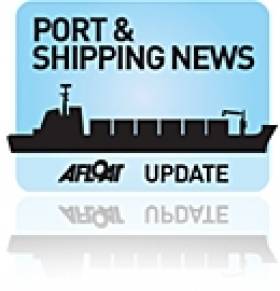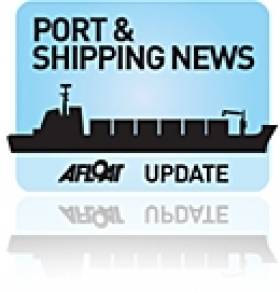Displaying items by tag: Feederlink
Irish Continental Group Statement of Results for 2012
#Shipping – The Irish Continental Group (ICG) parent company of Irish Ferries, have released a statement of results for the year ended 2012.
Commenting on the results Chairman John B McGuckian said,''These are resilient results in the face of a challenging economic background. There is now some emerging evidence of an improvement in the Irish economic environment, but we remain cautious, particularly in relation to freight capacity.''
ICG produced another resilient performance in the face of continued economic weakness, which affects both consumer travel and import / export trade flows, the two areas of economic interest for the Group.
During the year the group announced, and completed, the sale of its subsidiary Feederlink. Consequently the results for the group's continuing operations (i.e. excluding Feederlink for both 2012 and 2011) are set out below.
Revenue for the year from continuing operations was up 1.7% at €256.1 million while continuing EBITDA1 was down 3.2%, to €45.8 million, due mainly to lower freight volumes in both Ro-Ro and Lo-Lo and higher fuel costs (up €6.3 million to €53.2 million) largely offset by higher yields in the passenger business.
The net interest charge was €1.8 million (2011: €1.0 million) before a net interest expense from defined benefit pension schemes of €1.6 million (2011: credit of €0.3 million). The taxation charge was €0.5 million compared with €0.8 million in 2011.
The profit on sale of Feederlink was €21.0 million. Basic EPS including the profit on sale of Feederlink was 183.2 cent while adjusted EPS from continuing operations was 104.6 cent, up 3.1%.
For further information of the statement of results, click HERE for PDF download.
Irish Continental Group Release Financial Interim Report 2012
#PORTS & SHIPPING - Below is a comment from John B. McGuckian, chairman of the Irish Continental Group (ICG) on the half-yearly financial report for the six months ended 30 June 2012.
Mr. McGuckian said, "I am pleased to report a robust performance in the first six months of the financial year. Turnover grew, albeit moderately while EBITDA was €14.3 million in the first six months of the year, down only €1.8 million despite an increase of €4.5 million in our fuel bill in the period.
With regard to current trading, while freight remains weak due to the economic background our tourism and car business has benefited from reduced competitor capacity although fuel costs remain a headwind.
With our strong cash flow and balance sheet we propose an unchanged interim dividend of 33 cent per ICG Unit and due to the strength of our capital position propose a return to shareholders of up to €111.5 million via a tender offer buy-back, which is subject to shareholder approval.‟‟
Interim Management Report for the six months up to 30 June 2012
Results
The Board of Irish Continental Group plc (ICG) reports that, in the seasonally less profitable first half of the year, the Group recorded revenue of €127.1 million compared with €126.6 million in the same period in 2011 an increase of 0.4%.
Earnings before interest tax and depreciation (EBITDA) were €14.3 million compared with €16.1 million in the same period in 2011.
Operating profit was €5.1 million compared with €6.5 million in 2011. Group fuel costs were €28.9 million compared with €24.4 million in the same period in 2011. There was a net finance charge of €1.2 million (2011: €0.3 million) which includes a net pension expense of €0.8 million (2011: credit of €0.1 million) and net bank interest payable of €0.4 million (2011: €0.4 million).
Profit before tax was €3.9 million compared with €6.2 million in the first half of 2011. The tax charge amounted to €0.3 million (2011: €0.1 million). Basic EPS was 14.5c compared with 24.4c in the first half of 2011. Adjusted EPS (i.e. before the net pension interest expense) amounted to 17.7c (2011: 24.0c).
Dividend
The Board declares an interim dividend of 33 cent per ICG Unit payable on 5 October to shareholders on the register at 21 September 2012.
Disposal of Subsidiary
On 29 August 2012 the Group entered into an agreement for the sale, subject to regulatory approval, of its subsidiary Feederlink Shipping and Trading b.v. for a consideration of up to €29 million. All details are available from clicking this link: http://www.icg.ie/documents/2012/2012-07-30-Half-Year-Results.pdf






























































